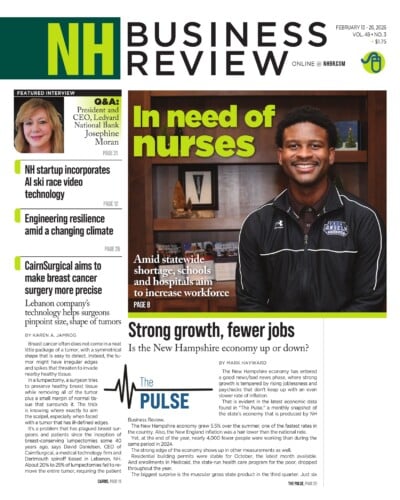Dartmouth to lead national secure smart home effort
$10 million program focuses on strengthening trust around household Internet of Things
 Dartmouth College has been selected to lead a national research project to increase the security and privacy of high-tech products used in so-called smart homes. The five-year, $10 million program to develop the devices and systems is funded by the National Science Foundation.
Dartmouth College has been selected to lead a national research project to increase the security and privacy of high-tech products used in so-called smart homes. The five-year, $10 million program to develop the devices and systems is funded by the National Science Foundation.
The project — Security and Privacy in the Lifecycle of IoT for Consumer Environments, or SPLICE — comes as households expand their reliance on smart products, ranging from refrigerators to baby monitors. These devices can share information with each other as well as communicate with services across the internet.
As lead institution, Dartmouth organized the program team and will coordinate its research and educational activities. Dartmouth will receive about half of the $10 million award.
“The technology in the average home today is radically different from even a decade ago and is likely to change even more rapidly in the coming years,” said David Kotz, a professor of computer science at Dartmouth and lead principal investigator for the project. “Home is a place where people need to feel safe from prying eyes. SPLICE will address the challenges required for the vision of smart homes to be realized safely and successfully.”
The program is charged with developing technology and design principles. Among those envisioned are:
- A toolkit to discover, identify and locate cooperative and non-cooperative smart devices within a home’s wireless network, allowing residents to have a complete understanding of their home’s technological environment
- Tools that move away from the failed “notice and consent” model of privacy management, shifting the privacy burden away from end users, who are ill-equipped to manage an increase in the number of devices and decisions
- Identification of privacy issues in smart homes that must be addressed to advance consumer trust – informing the development of best-practice principles for smart homes.
SPLICE includes research teams from Dartmouth, Johns Hopkins University, the University of Illinois at Urbana-Champaign, the University of Maryland, the University of Michigan, Morgan State University, and Tufts University. More than half of the principal investigators leading SPLICE are from groups underrepresented in computing.
“By working with a diverse group of leaders in the technology sector, we hope to influence the future of smart-home devices from design to disposal,” said Kotz. “This is a win for consumers and for companies who want to make more privacy-respectful choices but feel they cannot do so while remaining competitive in the current market.”











